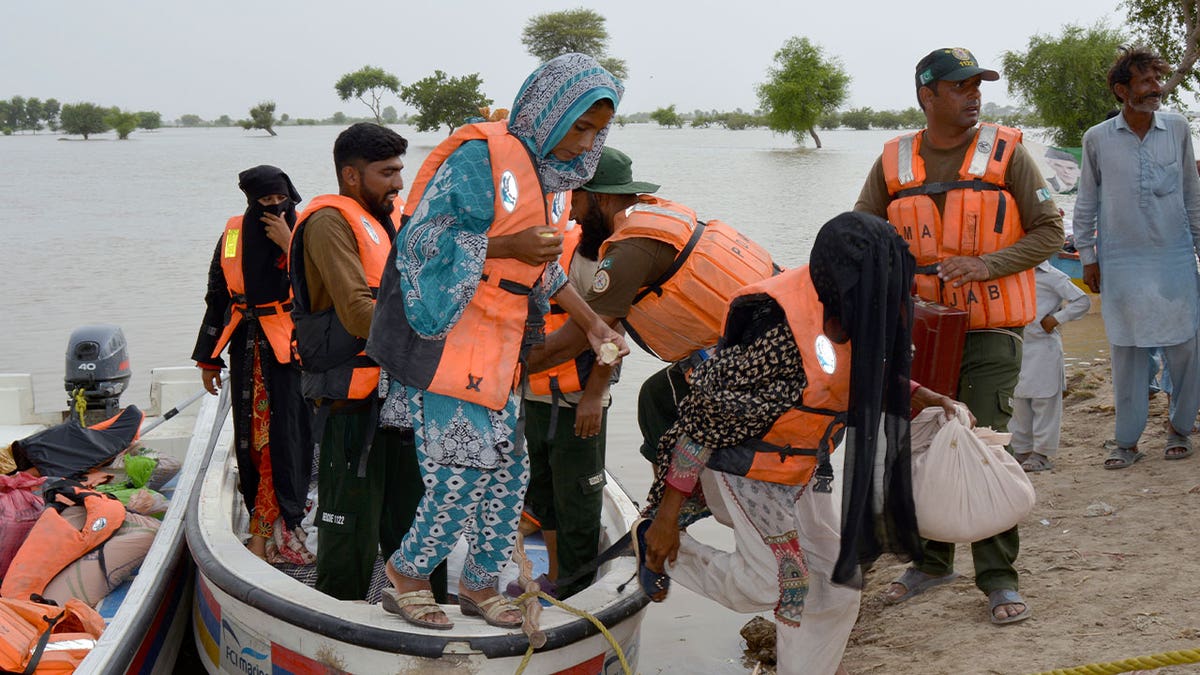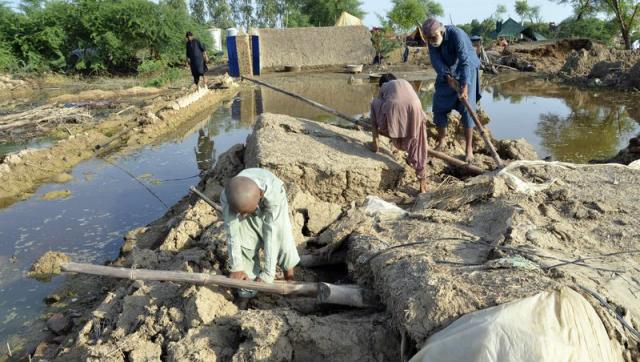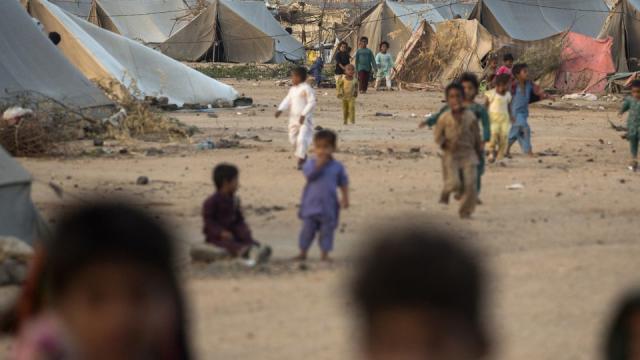Millions of Pakistani Children Still Thirsty for Hope: A Year After Deadly Floods

Millions of Pakistani Children Still Thirsty for Hope: A Year After Deadly Floods
In a grim reminder of the catastrophic floods that struck Pakistan a year ago, the United Nations Children’s Fund (UNICEF) has sounded the alarm bells, revealing that around four million children in the country are still deprived of access to safe drinking water. As monsoon rains return, a renewed fear of another climate disaster looms large over these vulnerable young lives.
The devastating floods, triggered by record monsoon rains and melting glaciers in Pakistan’s northern mountain regions in the previous year, had left nearly 1,600 people dead, with over a third of them being children. The aftermath of the disaster impacted an estimated 33 million more, rendering them homeless, stranded, and in dire need of basic necessities.
UNICEF’s recent statement paints a harrowing picture of the continuing plight faced by millions of Pakistani children. Abdullah Fadil, the UNICEF Representative in Pakistan, emphasized the long-lasting trauma these children have endured, stating, “They lost their loved ones, their homes and schools. As the monsoon rains return, the fear of another climate disaster looms large. Recovery efforts continue, but many remain unreached, and the children of Pakistan risk being forgotten.”
The floods had submerged a third of the country, unleashing the destructive force of floodwaters that washed away homes and infrastructure, leaving tens of thousands stranded without access to food and clean water. UNICEF reported that approximately 30,000 schools, 2,000 health facilities, and 4,300 water systems were either damaged or completely destroyed in the wake of the disaster.

“The climate-related disaster deepened pre-existing inequities for children and families in affected districts,” UNICEF stated. “One-third of children were already out of school before the floods, malnutrition was reaching emergency levels, and access to safe drinking water and sanitation was worryingly low.”
As the floodwaters receded, the situation took a devastating turn, as water-related diseases began to infect thousands, a significant portion of whom were children. Parents found themselves desperately seeking medical assistance as their children fell victim to diseases such as diarrhea, dysentery, dengue fever, and malaria.
The impact of these floods goes beyond immediate suffering, with long-term consequences for the affected regions and the nation as a whole. Access to safe water and sanitation remains a fundamental challenge, exacerbating the existing hardships faced by children and families. Clean water is not only essential for drinking but also for basic hygiene and sanitation, which are crucial in preventing the spread of diseases.
UNICEF has been working tirelessly in the flood-affected areas to provide essential support, including clean water, nutrition, education, and healthcare services. However, the scale of the disaster and the ongoing challenges mean that many children continue to live in perilous conditions.
The situation is further compounded by the recurring threat of climate change. Pakistan, like many other countries, is witnessing an increase in extreme weather events, with more frequent and severe floods becoming the new normal. This makes it imperative for governments and international organizations to develop comprehensive strategies to address the immediate needs of affected communities while also working on long-term climate resilience.
The plight of these four million children highlights the urgent need for collective action and international support. Ensuring access to clean water, healthcare, and education is not just a matter of humanitarian concern; it is a fundamental right for every child. The international community must step up efforts to provide aid and assistance to the flood-affected regions of Pakistan and work towards building a more resilient future for these vulnerable communities.
UNICEF’s call to attention serves as a stark reminder that even after the floodwaters recede, the impact on children’s lives endures. As we reflect on the year that has passed since this disaster, it is imperative that we do not forget the millions of young lives still thirsting for hope in the face of adversity.
In addition to the immediate relief efforts, addressing the long-term challenges posed by climate change requires a multi-pronged approach. This includes investments in infrastructure that can withstand extreme weather events, community-based disaster preparedness and response programs, and sustainable land and water management practices. Moreover, prioritizing climate change mitigation through reduced carbon emissions is essential to curbing the frequency and intensity of such disasters in the first place.
It is a collective responsibility to safeguard the future of Pakistan’s children and ensure they have access to the basic necessities of life, including safe water, education, and healthcare. As we continue to grapple with the aftermath of the devastating floods, let us not lose sight of the larger battle against climate change, which threatens the well-being and future of children not only in Pakistan but around the world.






